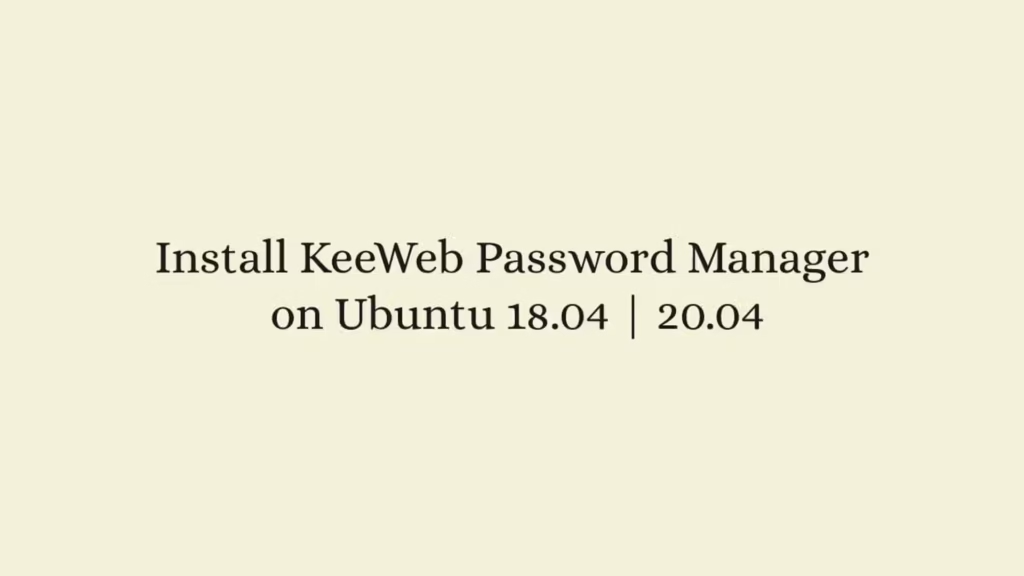In this article, we are going to shows that how to Install KeeWeb Password Manager on Ubuntu 18.04 | 20.04.
KeeWeb is a free, open-source and cross-platform password manager that is used to store passwords both online and offline securely.
KeeWeb is compatible with KeePass and also available as a web version and desktop apps. It can be sync your password automatically with popular cloud services like, OneDrive, Google Drive, Dropbox and many others.
It supports lot of multiple features including, Easy tags input, user-friendly desktop interface, Multiple file support, History, Multiple themes, Keyboard shortcuts, Inline image viewer, drag n’ drop, password generator and many more.
Install KeeWeb Password Manager on Ubuntu 18.04 | 20.04
Simply follow below steps to install KeeWeb Password Manager on Ubuntu system:
Step 1 : Prepare Your Ubuntu System
Before installing KeeWeb, you will need to update your system packages to the latest version using below command:
sudo apt update
sudo apt-get install apt-transport-https git ca-certificates curl software-properties-common gnupg2 unzipStep 2 : Install Docker
Docker is required to install the KeeWeb password manager on your Ubuntu system. Here for this article, we are going to install Docker CE (Community Edition).
To install Docker, first add the Docker repository key to your system using the below command:
curl -fsSL https://download.docker.com/linux/ubuntu/gpg | sudo apt-key add -
sudo apt-key fingerprint 0EBFCD88Now run the below command to add the stable Docker repository:
sudo add-apt-repository "deb [arch=amd64] https://download.docker.com/linux/ubuntu $(lsb_release -cs) stable"
Next, install the Docker CE by running below command:
sudo apt-get install docker-ceAbove command installed Docker in your Ubuntu system. To verify the Docker version, run the below command:
docker -v
The above command will display output similar like below:
Docker version 20.10.3, build 48d30b5
If you want to run Docker as a non-root user then you need to add your user account to Docker’s group. Simply run the below commands to do that:
sudo usermod -aG docker $USER
sudo chmod 666 /var/run/docker.sock
sudo systemctl restart dockerInstall KeeWeb
In the above step, we successfully installed Docker, so now run the below command to download the latest version of KeeWeb packages from git:
git clone https://github.com/SvenC56/docker-keeweb.git
To download all required and neccessary docker packages run KeeWeb, run the commands below:
cd docker-keeweb
docker build -t svenc56/keeweb .
docker imagesNow, create a container for KeeWeb from the downloaded image and expose it on port 80 with the following command:
Next, create a container for KeeWeb password manager from the downloaded image and expose it on port 80 by running below command:
docker run -d -p 80:80 svenc56/keeweb
You can verify the running container by using the below command:
docker ps
Access the KeeWeb Dashboard
To access the KeeWeb Dashboard, open your favorite web browser and browse to the server hostname or IP address.

After open the above screen, now click on the + icon to add the new password file.

Click on the New at the bottom to create a new file entry and provide details to create a new file entry.

That’s all
If you find any error and issue in above steps , please use comment box below to report.



